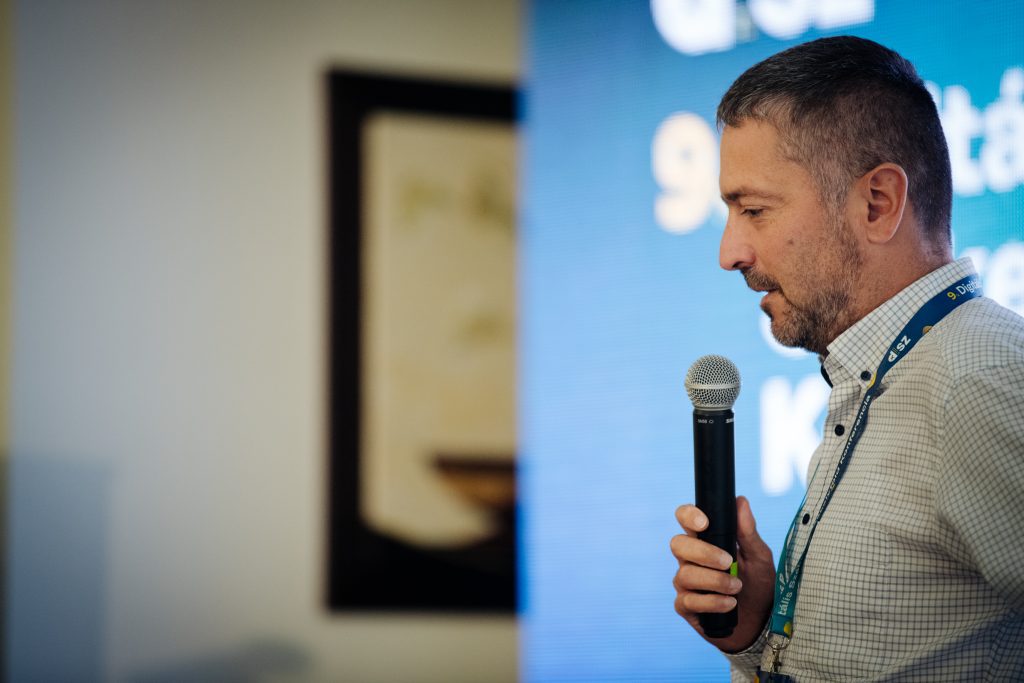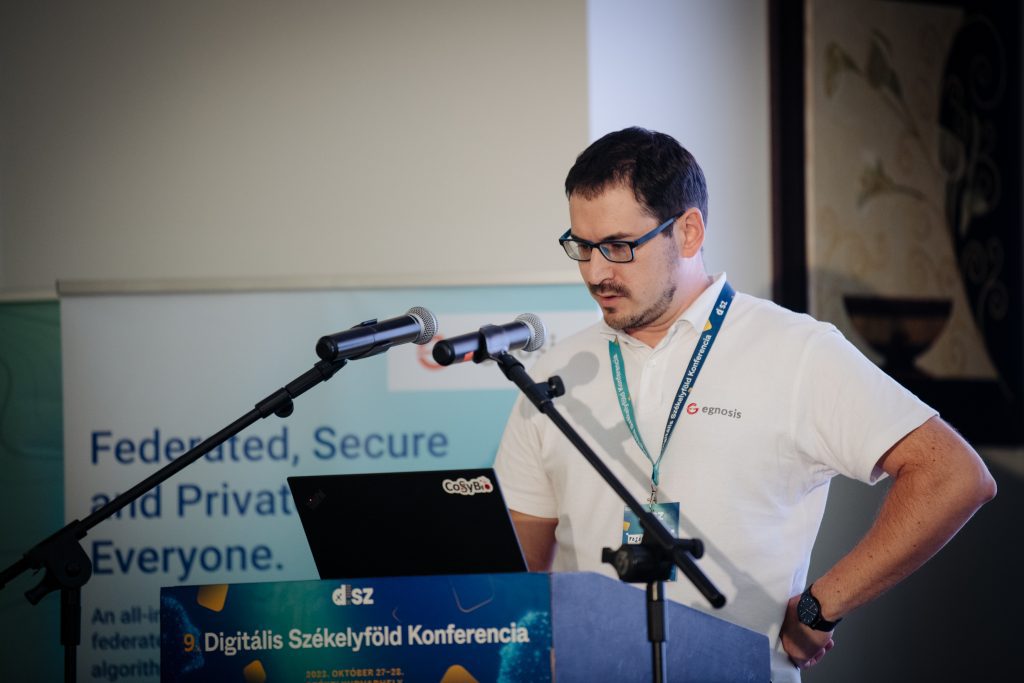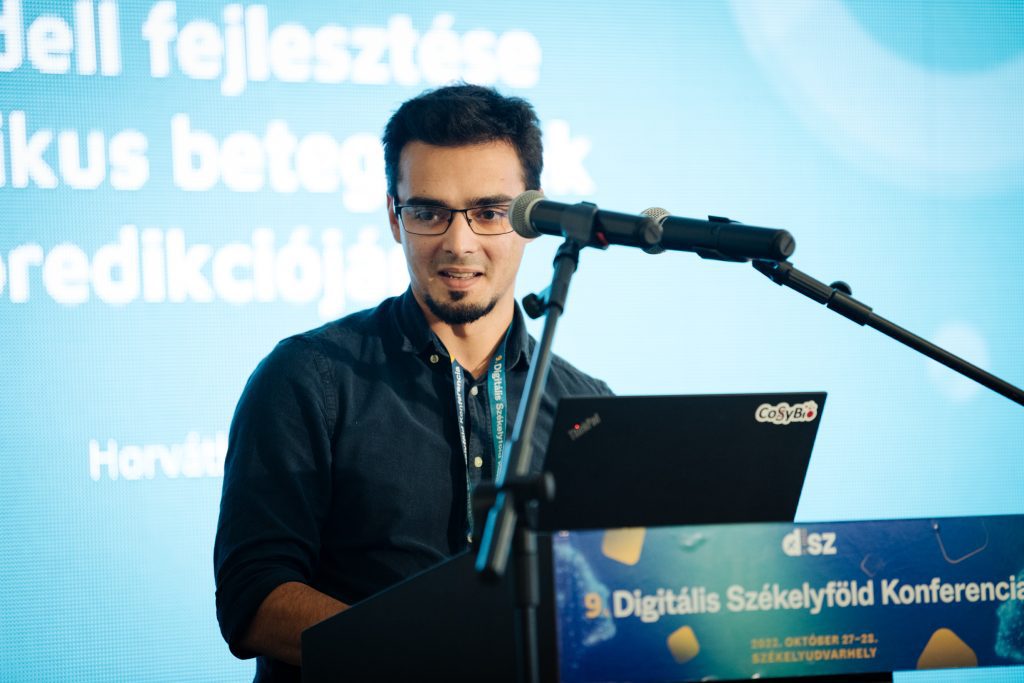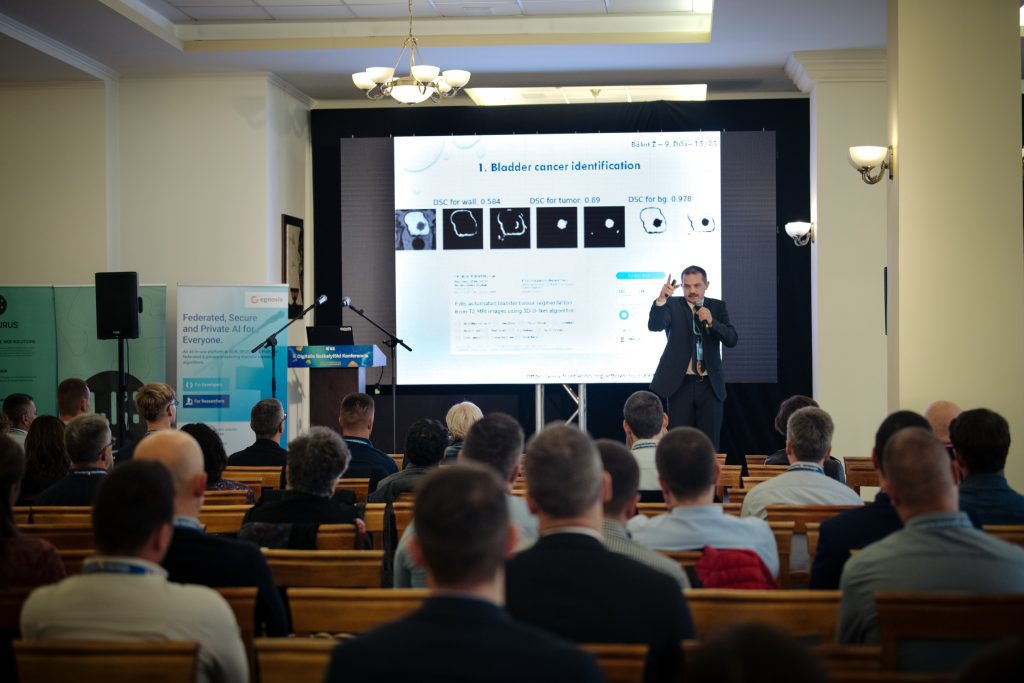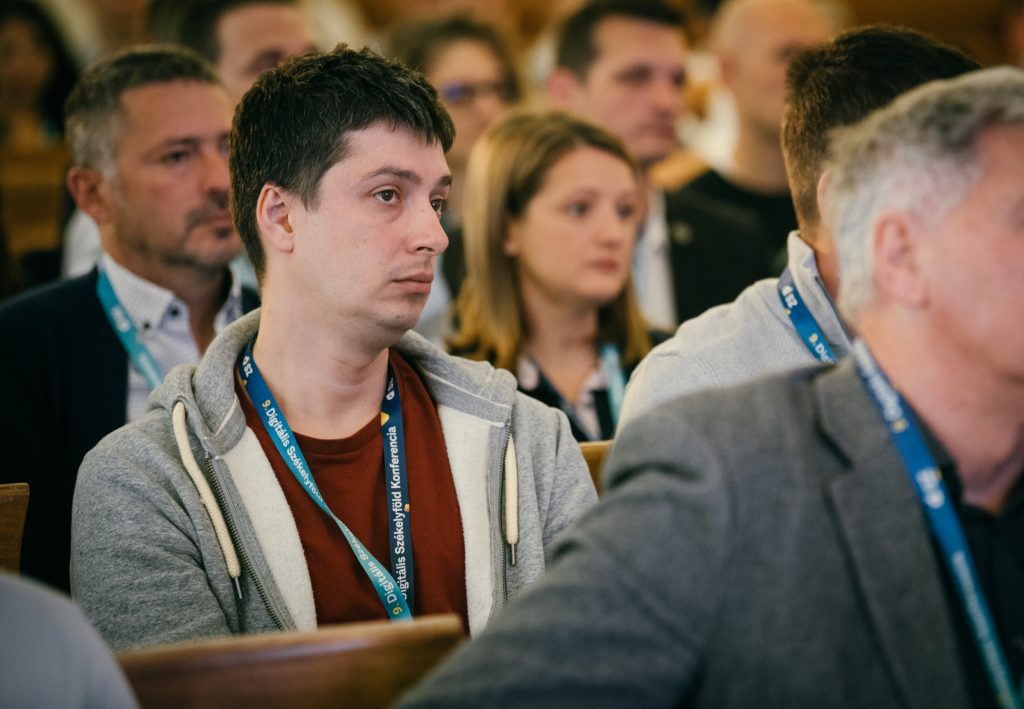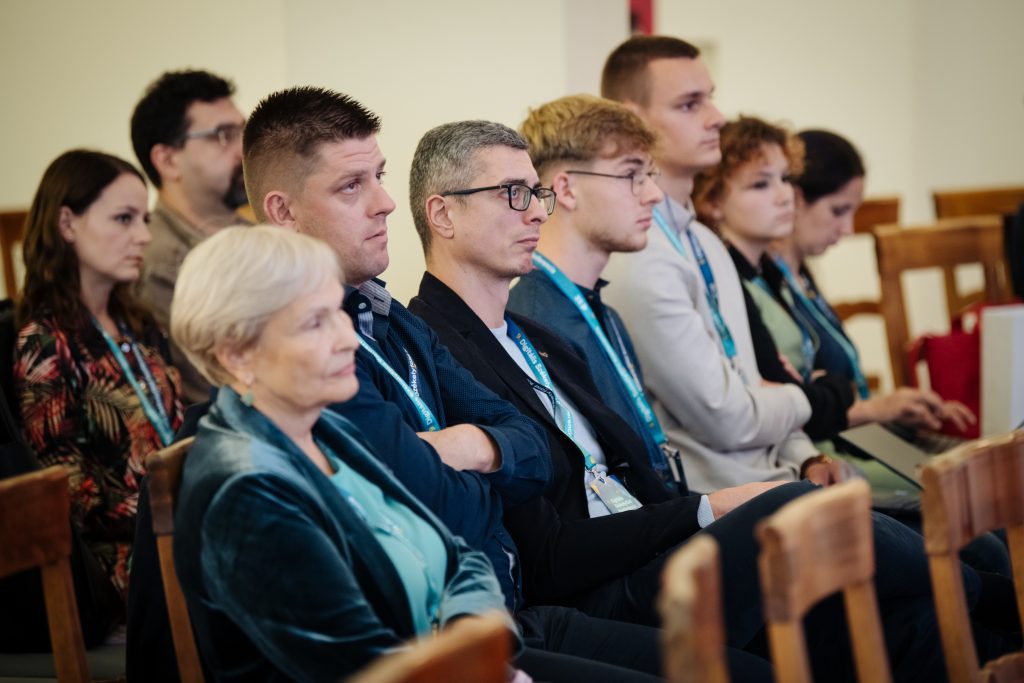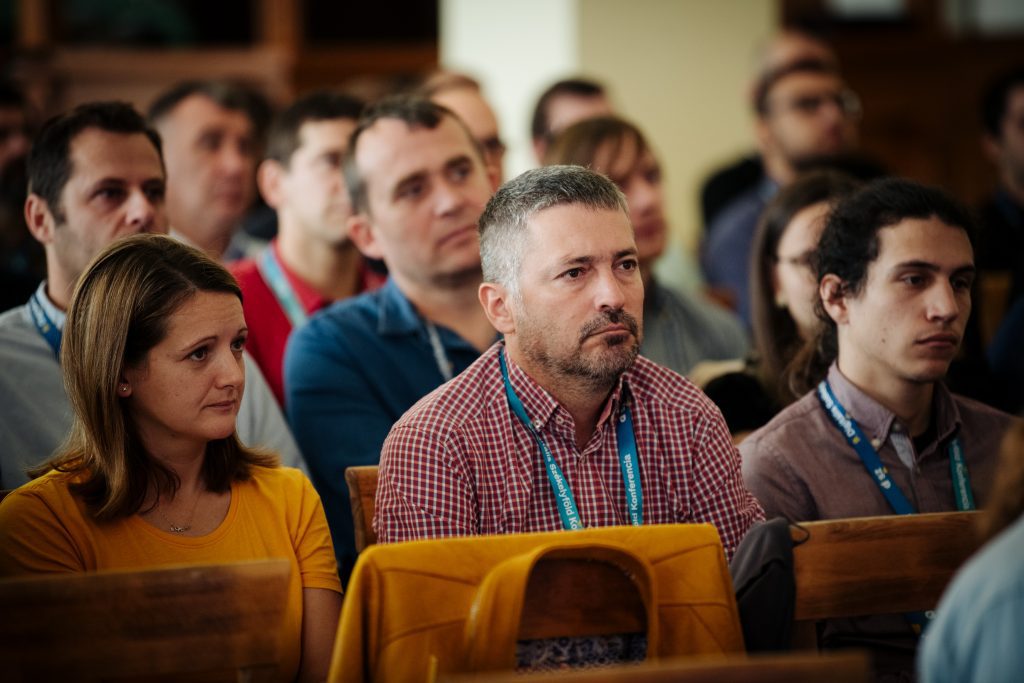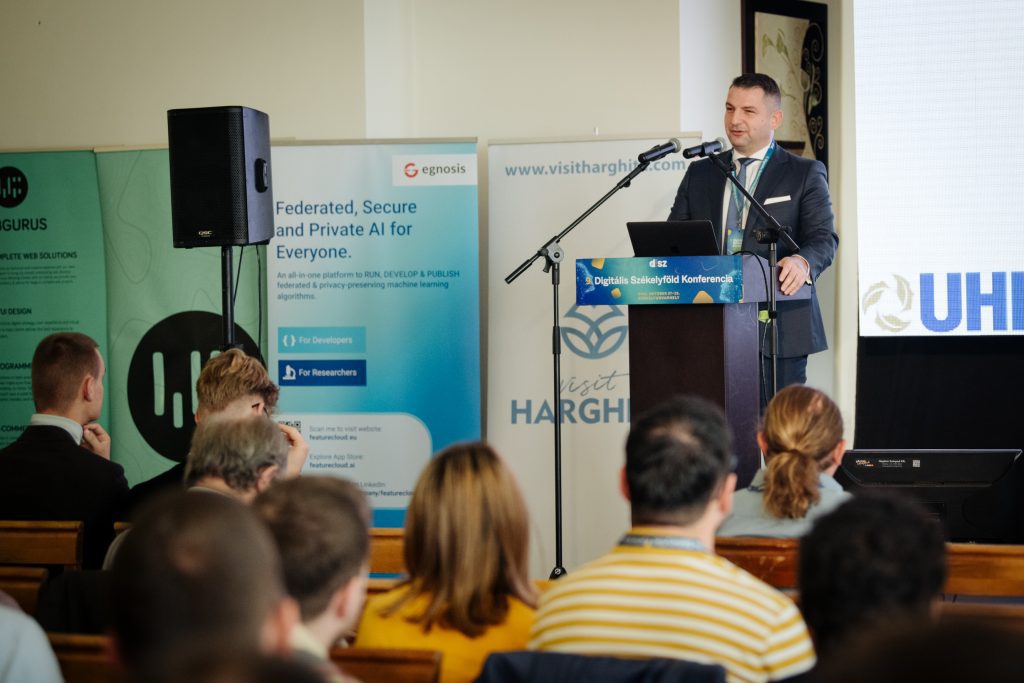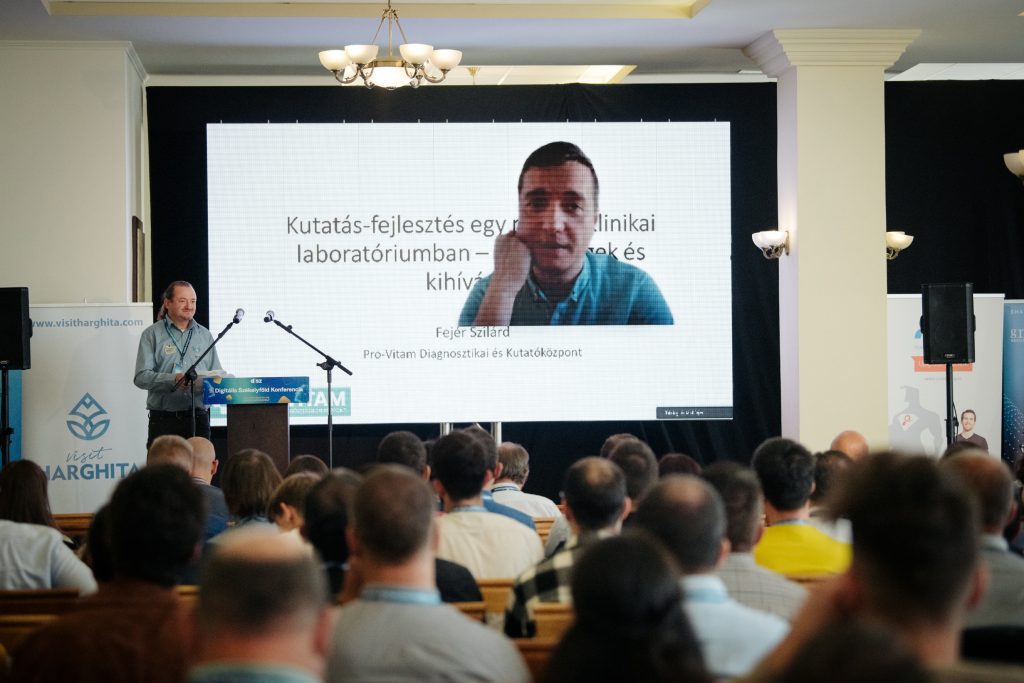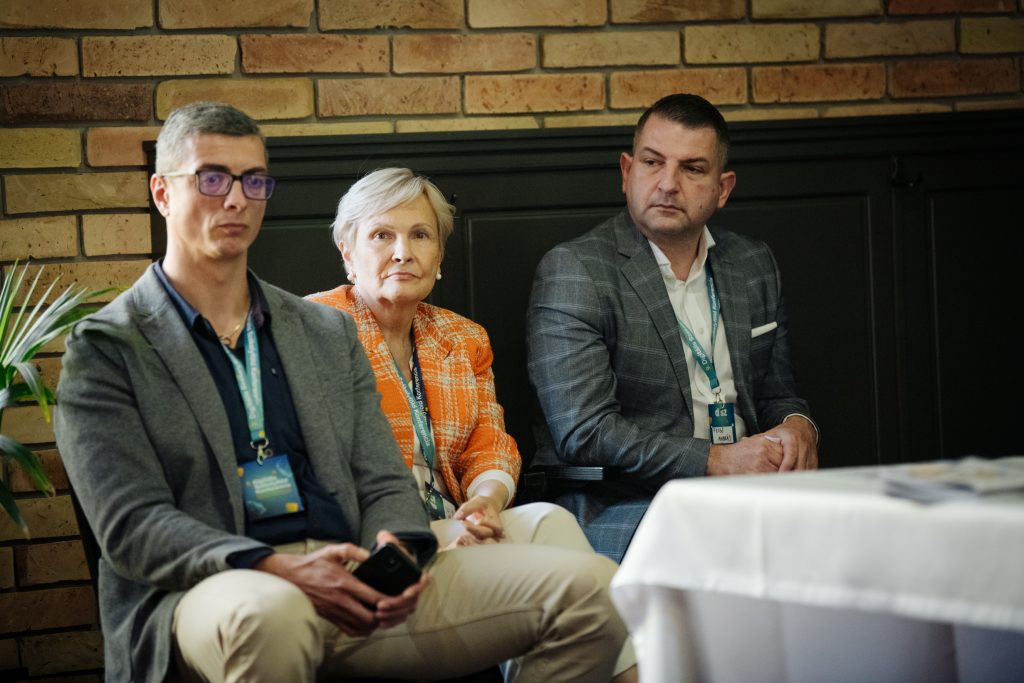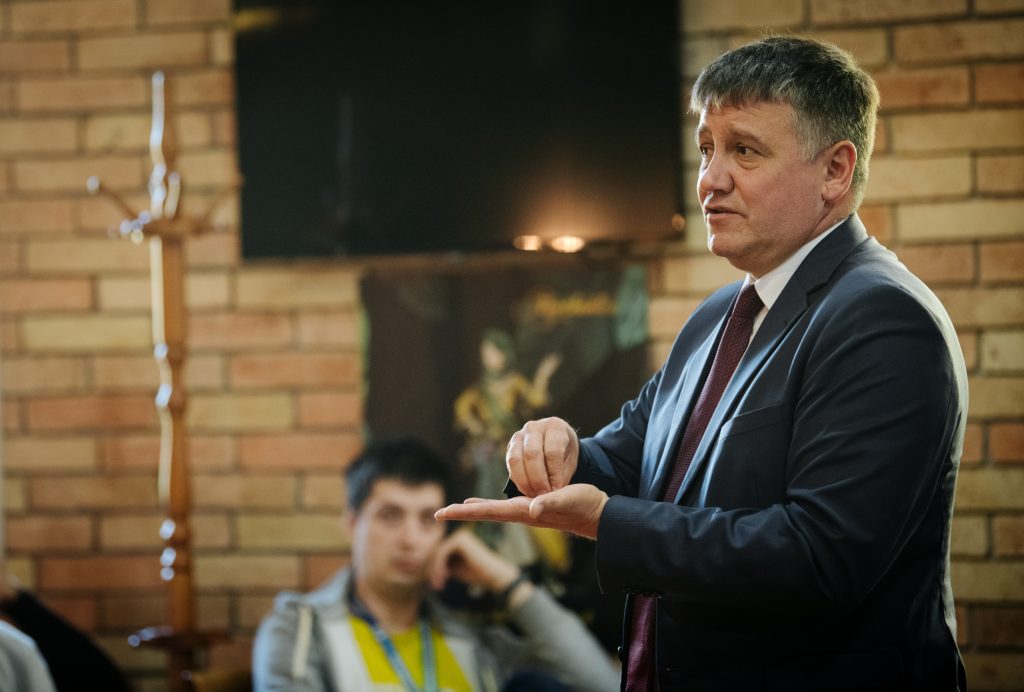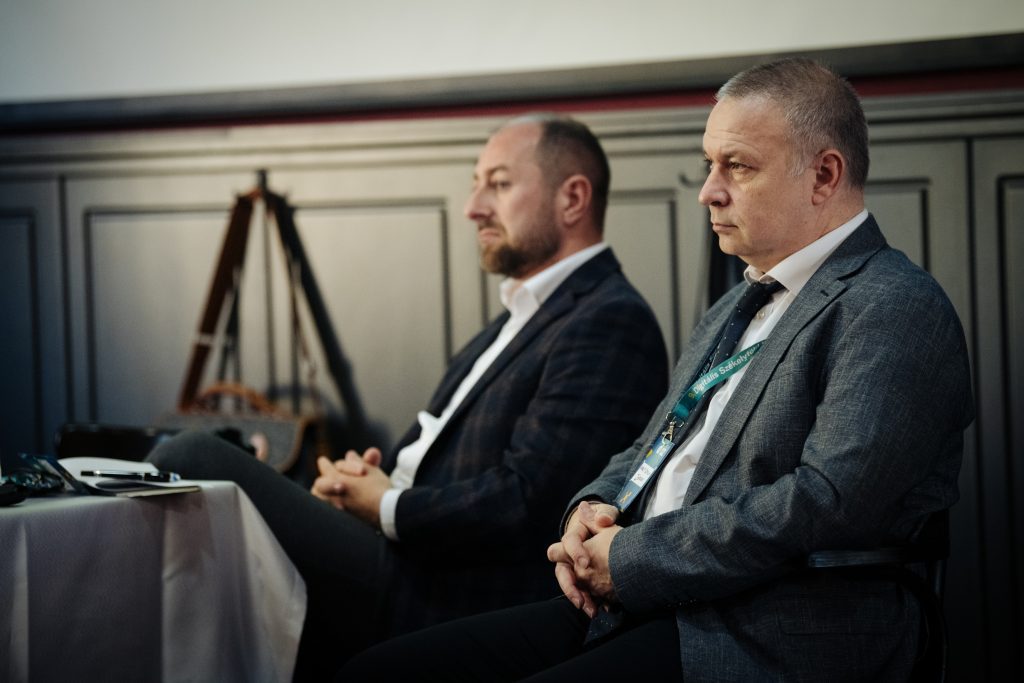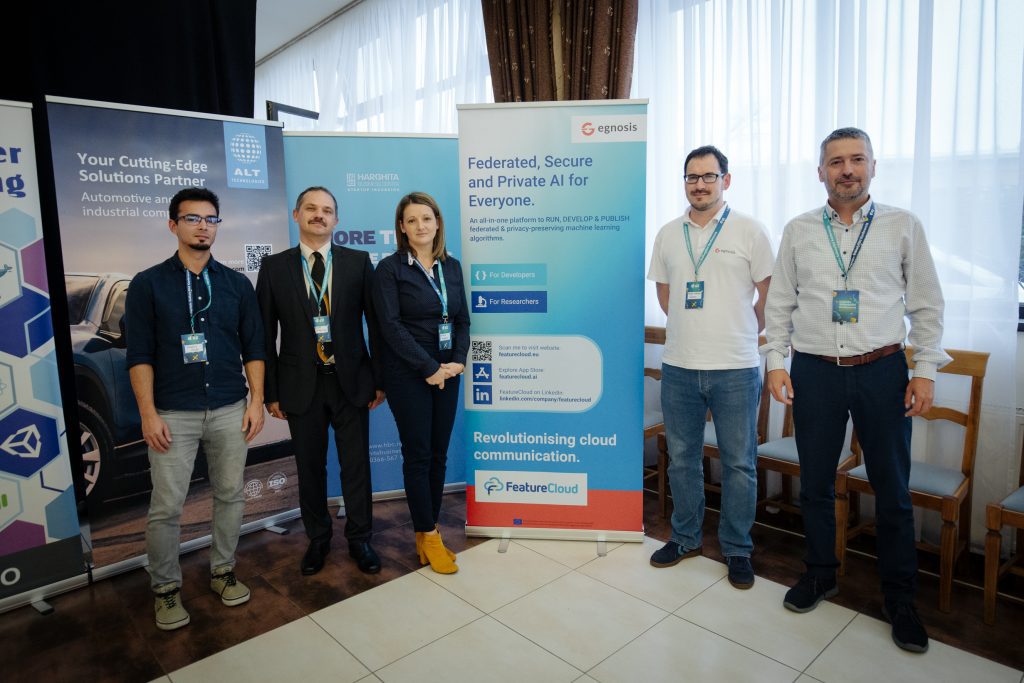Egnosis @Digital Seklerland Conference
On 27-28 October, we participated in the 9th edition of the Digital Seklerland Conference, organized in Odorheiu Secuiesc, Harghita. The two-day event gathered almost 300 participants from 5 countries, more than 60 speakers and experts from different domains. The event is a niche forum for the region’s development, which Egnosis has supported since the beginning.
About the Digital Seklerland Conference
The conference’s vision is to make Szeklerland a region where high-value-added products and services dominate the economy by 2030. Digitalization and creative industries are key to this vision. This year’s motto was “Efficiency 2.0,” which refers to new technologies, such as AI, LLM, and ML, that can learn, evolve, and optimize themselves. The conference explored how these technologies could improve industrial, business, development, and management processes. The topics discussed included industrial automation and robotics, AI applications, cybersecurity, IT in healthcare, technology trends, and software development efficiency. Additionally, the conference highlighted how digitization can assist local businesses, municipalities, and healthcare institutions.
Research and development for healthcare improvement
This year, Egnosis took the challenge to build the healthcare topic into the conference’s program. We organized two main panels, as follows.
Medical research and development projects presentation
Within the presentation of the medical research development projects panel, Béla Bihari, as moderator of the panel, talked about how, in the life of the Digital Szeklerland Conference, we have come to the point where Szeklerland can talk about the development of medicine and how, by entering the uneven field of research and development, we can put its results into practice for the common good.
Sándor Fejér, a senior developer of Egnosis, presented the FeatureCloud project, in the context of the importance of AI in healthcare and federated machine learning, as a working solution to many critical arising questions, such as protection of personal data and GDPR, data sharing between institutions and development architecture issues. Complementing this presentation, István Horváth, Ph.D. student and Pro-Vitam Medical Center team member, presented a comprehensive overview of the project’s implementation at the local level, emphasizing interesting relationships between parameter defining as data input and machine learning results as an outcome.
The third speaker, Dr. Zoltán Bálint, a researcher from Babeș-Bolyai University, presented how the physicist gets to the hospital if he is not sick: it is the physicist’s job to translate between IT/AI and medicine.
Roundtable discussion with healthcare stakeholders
The second part was a roundtable discussion with hospital managers and healthcare stakeholders in Seklerland, aiming to explore AI and digital opportunities in light of their institution’s digitalization initiatives. Dr. Judit Konrád (Miercurea Ciuc County Emergency Hospital), Róbert András-Nagy (Dr. Fogolyán Kristof County Emergency Hospital from Sfantu Gheorghe), and Gyula József Nagy (Odorheiu Secuiesc Hospital) presented their institution’s timeline regarding of digitalization and research initiatives, as well as their visions and obstacles in its way. Former state secretary and the president of Studium Prospero Foundation, Dr. Levente Vass, presented legal, financial, institutional and technical correlations that influence healthcare development in Romania within Secklerland as a contract. In addition, Dr. András Botond Fecső, clinical surgeon, university lecturer and researcher, presented how all the mentioned issues work at Toronto University Hospital.
In the moderation of the administrative director, Zsombor Steckbauer, an exciting discussion between the speakers and the audience took place. They addressed each other with great interest, and many good ideas were expressed, which also ensured further opportunities for cooperation.
In addition, healthcare on the big screen
This year, the health sector took a prominent place in the plenary sessions of the conference. Dr. Fecső András Botond, an expatriate researcher and surgeon, shared his experiences at the Toronto University Hospital and offered participants a close-up look at the rise of digitalization in the surgical operating room.
Our chemist-researcher colleague, Szilárd Fejér, logged in online and presented the opportunities and challenges of a private healthcare institution if we consider initiating R&D projects. He also highlighted the success of the local collaboration with Egnosis, through which the FeatureCloud project and its consortium turned the idea into reality.
See you at the 10th Digital Seklerland Conference!
The conference was an excellent opportunity to mobilize local representatives from the health sector, connect them with digitalization advocates and provide a helpful knowledge transfer that opens the way to further collaborations. For Egnosis, this is the most significant added value of participating in the conference. We hope to go deeper into this topic in the future, at the tenth edition of the conference.
If you’re interested in medicine and R&D, you don’t need to wait till the next Digital Seklerland Conference! Follow us on Facebook, LinkedIn or YouTube to keep up-to-date with our latest news!
And finally, here are a few snapshots from the conference! Enjoy!
